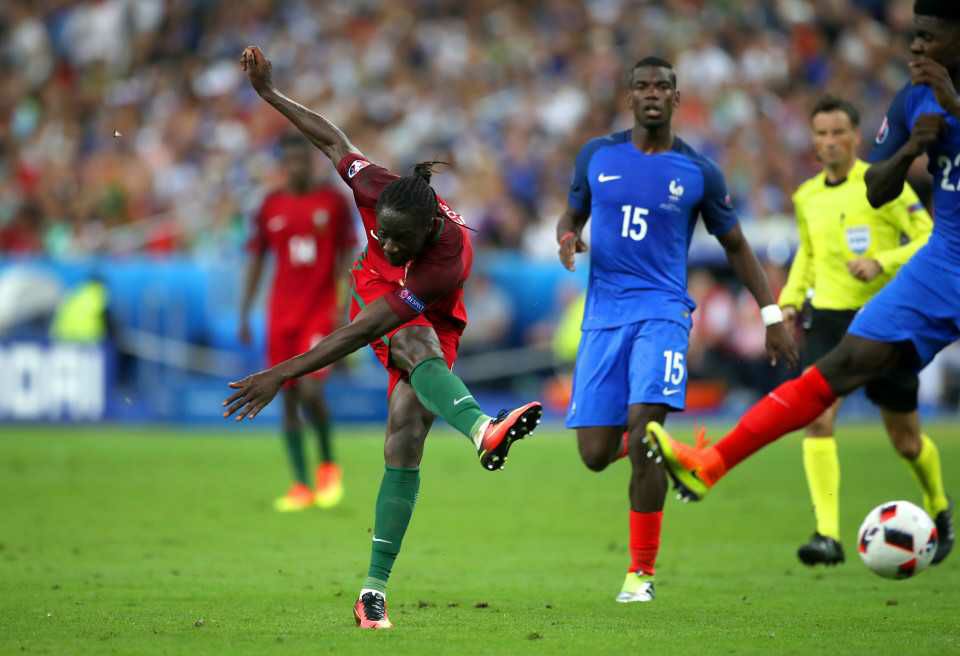After watching Portugal beat France in the final of the Euro 2016 many concerned football enthusiasts across Africa have been drawn in an eternal debate as to why an African team has never won the World Cup.
Football pundits, Journalist and fans across Africa could only watch in admiration at the number of players with African descent taking part in the final.
90 percent of the French National Team at the Euros was made up of players with their origins deeply rooted in Africa. Players like Mangala, Matuidi, Evra, Pogba, Sagna, Umtiti, Kante all formed the core of the host nation’s hopes.
Portugal also had a fair share of representation in the shape of stand in captain Luis Nani, midfield dynamos William Carvalho and Renato Sanchez. To rub salt to wounds, the winning goal of the Euro final was scored by Eder, another son of the soil who came on to replace the injured captain Cristiano Ronaldo.
That goal alone was enough to fan an inquiry into the root cause behind Africa’s failures at major world tournaments.
African teams have had success at World tournaments including that historic Nigerian win against Argentina at the 1996 Atlanta Summer Olympics in the final.
Nigeria’s Olympic heroes of 1996
Cameroon have also grabbed gold at the 2000 Summer Olympics in Australia at the expense of Spain.
Ghana won Africa’s first Under 20 FIFA World Cup in 2009 beating Brazil in the Final while the Nigerian Under 17 men keep dominating world football in their age category.
But still the question continues to echo in our minds. Why is it that an African team has never won the FIFA World Cup?
1. REPRESENTATION
It is no secret that Football Associations across the African continent have been fighting for a sixth spot at the FIFA World Cup. It has been everyone’s desire to see Africa be given a fair share of representation at the tournament. A sixth spot is seen as a chance for African teams to have a shot at the World Title.
The first time an African team came close to winning the title was in 1990 when a Rodger Miller inspired team went all the way to the quarter final before falling at the hands of Gary Lineker and England.
Cameroon in action at Italia 90 against Argentina
Senegal took the World Cup by storm in 2002 Japan Korea beating defending Champions France in the first game and stormed passed Sweden in the Round of 16. But they were knocked out by Turkey through that infamous ilhan Mansiz golden goal.
A brave Senegal side were beaten by a heart breaking Ilhan goal (Getty images)
When the 2010 FIFA World Cup was hosted on African soil for the first time, it was seen as an opportunity for an African team to take another shot at the World Title more especially that Africa now had 6 teams representing the hopes of the entire continent.
Up stepped the Black Stars of Ghana but again just like in the previous heartbreaking moments, Ghana were brought to a bitter halt by the hand of Luis Suarez. Many were left wandering what could have been had Dominic Adiyah’s header hit the back of the net.
Ghana captain Asamoah Gyan failed to convert a spot kick against Uruguay that could have take his side to the Semi finals.
African hopes went up in smoke once more despite having 6 countries taking aim at the rest of the World.
Is it really about representation? Are numbers vital to achieve success? It is common knowledge that in order to achieve something, a fair share of representation is required. But even with more representation, it is no guarantee that one is to succeed. Which leads us to the next point.
2. MENTALITY
African players have physical strength unmatched by many in world football. They have skill, speed and the hunger to achieve greater things. They have the passion to succeed at any stage and in any part of the World. Take an African player in freezing conditions, he will perform to the fullest and succeed. Take them in humid conditions at the highest altitude, they will perform over and over.
But the question is, why do African teams fail to win the FIFA World Cup?
African stars grace the world’s best leagues in huge numbers. They feature for the best clubs and many have gone on to win major trophies like the Uefa Champions League, The Italian Serie A, The Bundesliga, The Barclays Premier League and the FIFA Club World Cup. But still the question lingers.
Why has an African team never put its hands on Football’s greatest prize?
Many players have a poor mentality to succeed for their countries. They possess the right set of skills but what really brings them down is the lack of discipline. They may represent the continent in huge numbers in all the top leagues in Europe but many players lack the drive to steer their countries to success due to a superiority complex.
Which brings us to the next point in discussion.
3. LOCAL COACHES
It is very difficult for African players to achieve their full potential due to lack of discipline. Discipline is very key to team spirit. They say one bad eggs soils all.
African coaches are very much in a tough spot when it comes to controlling big egos in the squad. Very few coaches have the mental strength to stand up to big stars, therefore damaging team spirit.
Local coaches have the desire to win but they lack ambition.
They never see the bigger picture. Native coaches are too much dependant on the so called professional players. Therefore they deny young and upcoming players the chance to gain the required experience.
It is cardinal to note here that many Football Associations have resorted to hiring foreign based coaches to drill their National teams for one reason only. To instill the winning mentality in the team. There is always a lack of belief in local coaches due to their inability to inspire a winning mentality in their teams.
It’s also very important to note that no African Coach has ever taken an African team to the quarter final stage of the FIFA World Cup.
Cameroon had Valery Kuzmich Nepomnyaschny from the Soviet Union as their coach at Italia 90.
Frenchman Bruno Metsu drilled Senegal at the 2002 Japan Korea FIFA World while Milovan Rajevac was in charge of the Black Stars of Ghana in South Africa 2010.
The record is there for all to see. This trend will continue unless something is done. Which brings us to the last and important point.
4. ADMINISTRATION.
Lastly, in as much as local coaches lack the mentality to win, some just don’t have the freedom to work. Local coaches are always under pressure from their employers to deliver results within a given deadline. They are never given time to build a team for the future. Any Football Association will want instant results but it is never the best way of achieving success. Building a winning team takes time and it is very important for various FAs in Africa to take a leaf from European Associations and how they retain local coaches for a longer period. If a coach is not retained for the building process, the incoming coach needs to be given an idea on which direction to take. That’s very key.
Football Associations must start building for the long term and maintain local coaches.
Many Football Associations across the African continent have been grappling with a very big enemy, and that is themselves. Football Associations are plagued by in-house squabbles. Their is lack of the unity of purpose for the good of the game. Too many fights going on in the Associations damage team spirit and causes uncertainty. Football Administrators need to learn to sort out their differences for the good of the game.
It is no secret that many African players who have chosen to represent European teams have done so after weighing the benefits. They never want to be distracted and subjected to shoddy preparations before a major tournament. They don’t want to be subjected to poor travel arrangements and arrive four hours before the game.
THE WAY FORWARD
We still have a lot to learn as a continent but that doesn’t mean we are short of great minds. We just need to learn to live together and the sooner we do that, the better.
We need to stamp out all kinds of corruption in the African game. We need to have a collective vision as a continent on how we will improve our standing in world football.
We must strengthen our local leagues and enhance grassroot football.
Local coaches must undergo intensive psychological training to withstand pressure during matches.
Local coaches have the ability to succeed if given the right tools. Africa has seen some of its locally bred managers bring success to their National Teams. The likes of Hassan Shehata with those back to back African titles with Egypt in 2006, 2008 and 2010 and the late Steven Keshi winning the 2013 Afcon with the Super Eagles.
Hassan Shehata won 3 consecutive Afcon titles with Egypt.
We need to have belief in local coaches.
African based players must be given equal opportunity to develop and should not be sacrificed at the expense of foreign based players. In short, players must be picked on merit.
These are just some of the many issues that need addressed but the most important of all is to define a clear road map as to where African Football is headed.
Football Journalist | TotalEnergies AFCON 2021 Photographer | Media Officer - Kabwe Warriors FC | Graphic Designer | Videographer



CAF Confederation Cup
Simba book final spot in CAF Confederation cup

CAF Confederation Cup
Simba book final spot in CAF Confederation cup
Must See
-


AFRICA
/ 5 years agoSierra Leone FA President Isha Johansen endorses Patrice Motsepe for CAF President
Sierra Leone FA President who also doubles up as CAF Executive Council member Madam...
-


Football
/ 5 years agoIT JUST CAN NOT BE – AN AFRICA FULL OF MORONS?
By John De Mathews, There is an eerie silence around Africa, and it is...



















